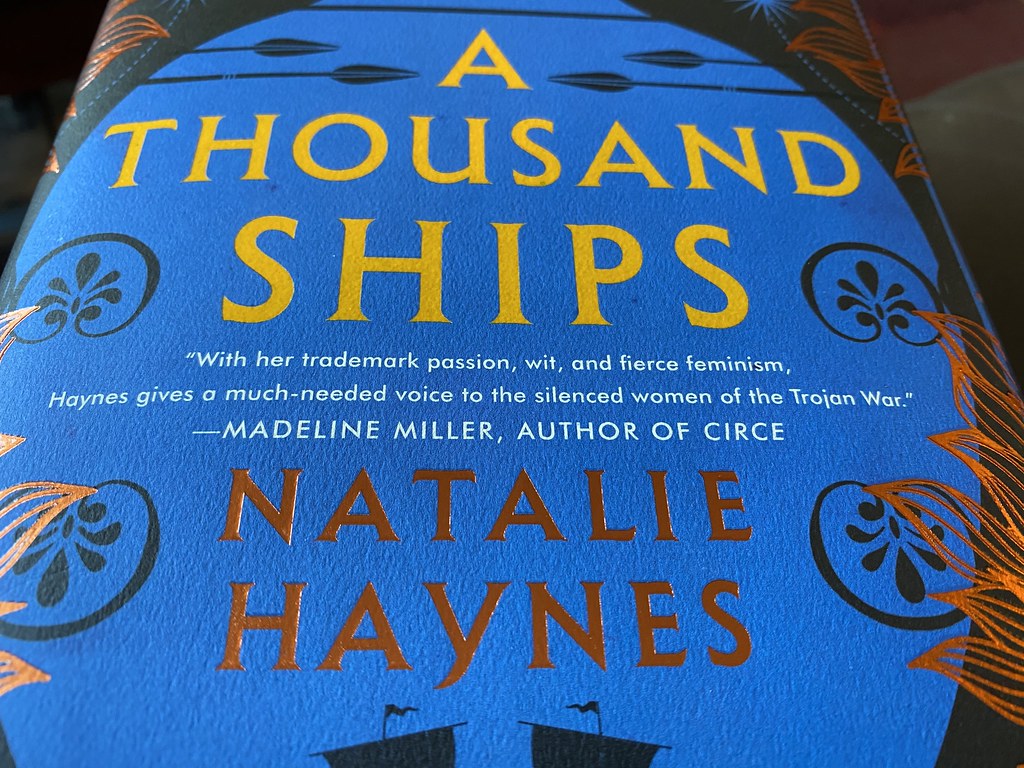If you liked Circe by Madeline Miller, then you’ll enjoy A Thousand Ships by Natalie Haynes.
This is a novel about the Trojan War, but from the women involved, from meddling goddesses to ordinary mortals, all caught up in a civilization-ending cataclysm.
I love contemporary takes on Greek mythology. For this book, it helps to know a bit about the Odyssey and the Iliad. If not, there’s a guide at the beginning of the book to the characters.
In this novel, the muse Calliope sings, but of the women. The goddesses Hera, Aphrodite and Athena who forced Paris to make a fateful judgement. Hecuba, enslaved, with her city destroyed. Clytemnestra slowly plotting revenge against her husband.
My favorite part was Penelope musing as she hears increasingly fantastical tales about her long-missing husband, Odysseus, and his wanderings through the known world after the fall of Troy. Supposedly on his way home, he sure gets kidnapped by beautiful women a lot.
Like Circe, this is another book where the man of twists comes off badly.
Which is why I liked Circe and A Thousand Ships so much. Both novels deconstruct Greek fables and force us to look at them with modern eyes. Maybe The Odyssey isn’t a tale of adventure and perhaps Penelope wasn’t as faithful as she appears. What woman wouldn’t get impatient with a man who goes out of his way to piss off Poseidon?
These stories have endured over the centuries because they are complex, with many layers, and contain dilemmas and challenges that even modern readers can appreciate. A Thousand Ships breaths life into these ancient tales to create a beautiful novel of women’s voices.
